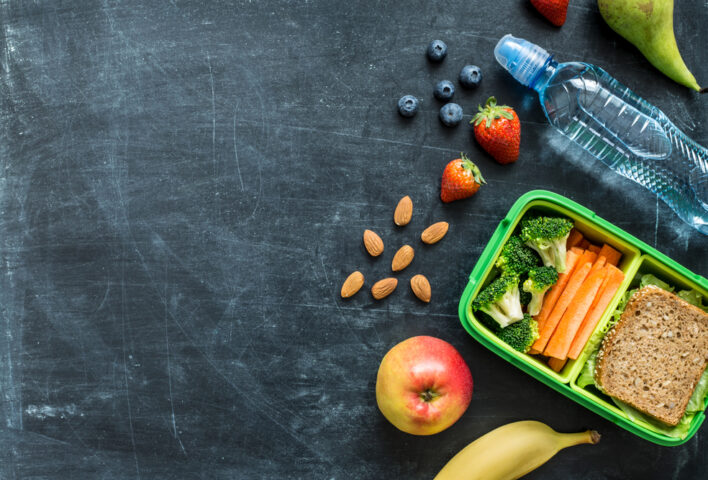Ask the Dietitian: Healthy eating for children
A child’s nutritional needs change as they get older. Registered dietitian Rachael Hunter looks at ways school-aged children can have a healthy, balanced vegetarian diet.

A child’s nutritional needs change as they get older. A baby will need different things to a toddler, and a five-year-old will eat differently to a teenager. This article will focus on school-aged children and ways to help them to have a healthy, balanced vegetarian diet.
Role modelling
It makes sense that children learn from what they see around them, so if we eat a healthy balanced diet they are more likely to follow in our footsteps. Eating together is a great way to show children healthy eating habits in action. This could include sitting at a table together rather than in front of the television, possibly involving them in the cooking beforehand, and even at this time of year growing some of the vegetables.
This is also a great way to expose them to new foods. It is common for some children to become fixed on only liking certain things. However, eating together is an easy way of exposing them to different foods, as they will not only see you eating a variety of foods but they will also have the opportunity to try them.
All about balance
Just like with adults, it is good for school-aged children to have a regular meal pattern, such as three meals and two snacks a day. Prioritising fruits and vegetables at snack time will make sure they get a good dose of vitamins and fibre, and choosing these foods rather than grazing on snacks with lots of added sugar is also better for their teeth.
Main meals should consist of a carbohydrate (e.g. pasta, rice, potatoes), protein (e.g. beans, pulses, lentils, tofu) and vegetables. Children’s stomachs are smaller than adults’ stomachs, so they will need smaller portions. It can help to serve a child’s portion on a side plate rather than an adult-sized plate so it still looks full, and if they are still hungry at the end of the meal they can have the option of seconds. Some of us will have been brought up to finish everything on our plate, but it is important not to force children to do this so that they can learn to listen to their body when it tells them they are full.
Calcium
Children’s bones are still growing and developing so it is important they have enough calcium. Aim for around three portions a day, such as a small glass of milk, a yoghurt, and a small matchbox-sized piece of cheese. Plant-based milks often have calcium added now, but it is always good to double-check the label.
Quick tips
- Have a family fruit bowl that children can access.
- Things like fruit salad can be made with a mix of fresh, frozen and tinned varieties, and can be kept in the fridge for an easy snack or dessert. Carrots can also be chopped into sticks and kept in the fridge – storing them in the water will help to keep them fresh.
- If your children are allowed sugary drinks (including fruit juice), keep them to meal times to help protect the teeth.
- Think about the language we use around food. Are we using high-sugar and high-fat foods as a treat or reward, but also calling them bad? Aim to talk about food in more neutral terms. No food is all good or all bad: it is simply nutrition.
- Have patience! Supporting children to eat a balanced diet can be challenging, particularly if they were not weaned to be vegetarian. We all need to taste new foods a number of times before we start to accept them. Small steps along the way might even be putting a new food to their lips. This is all progress.
